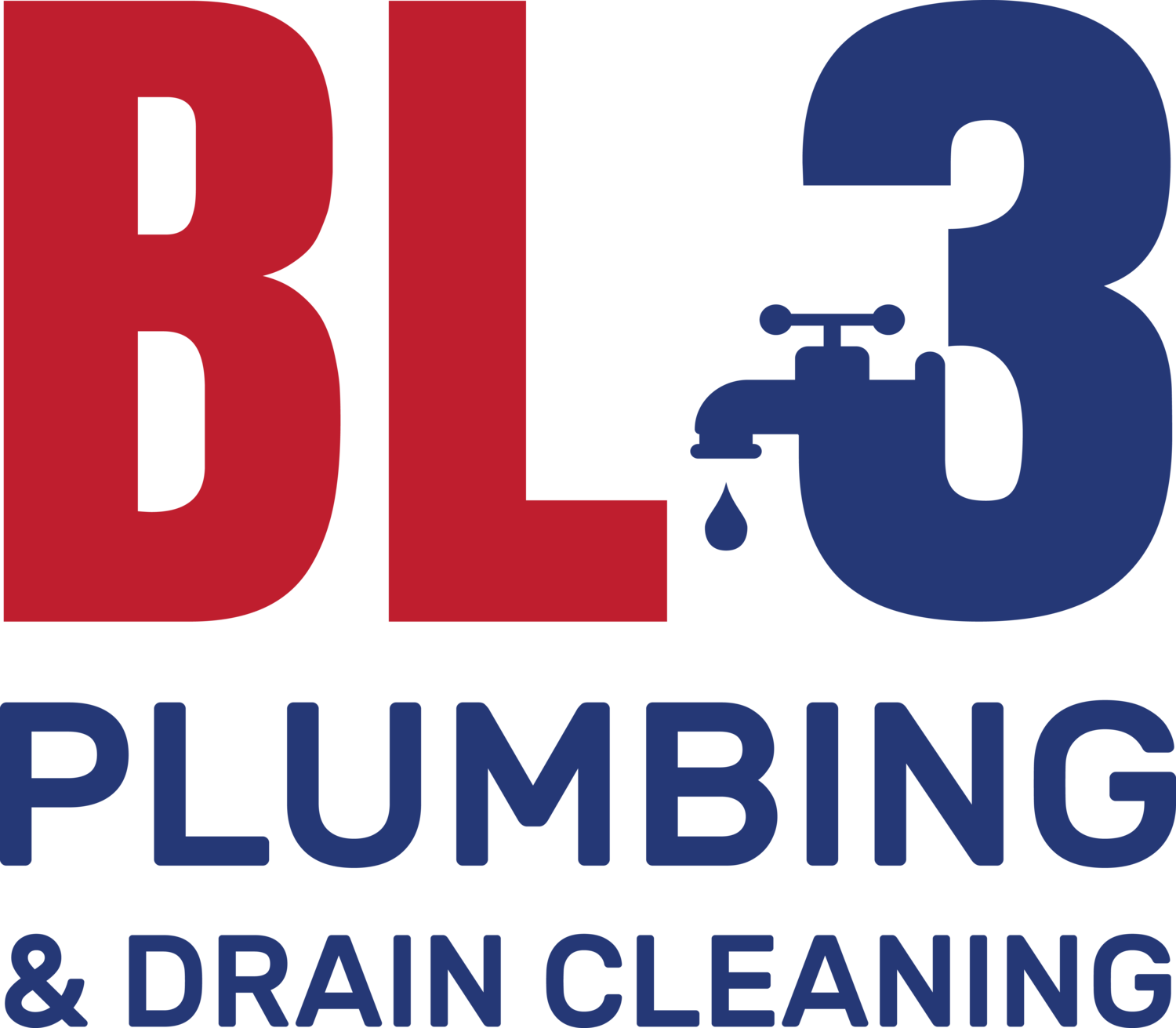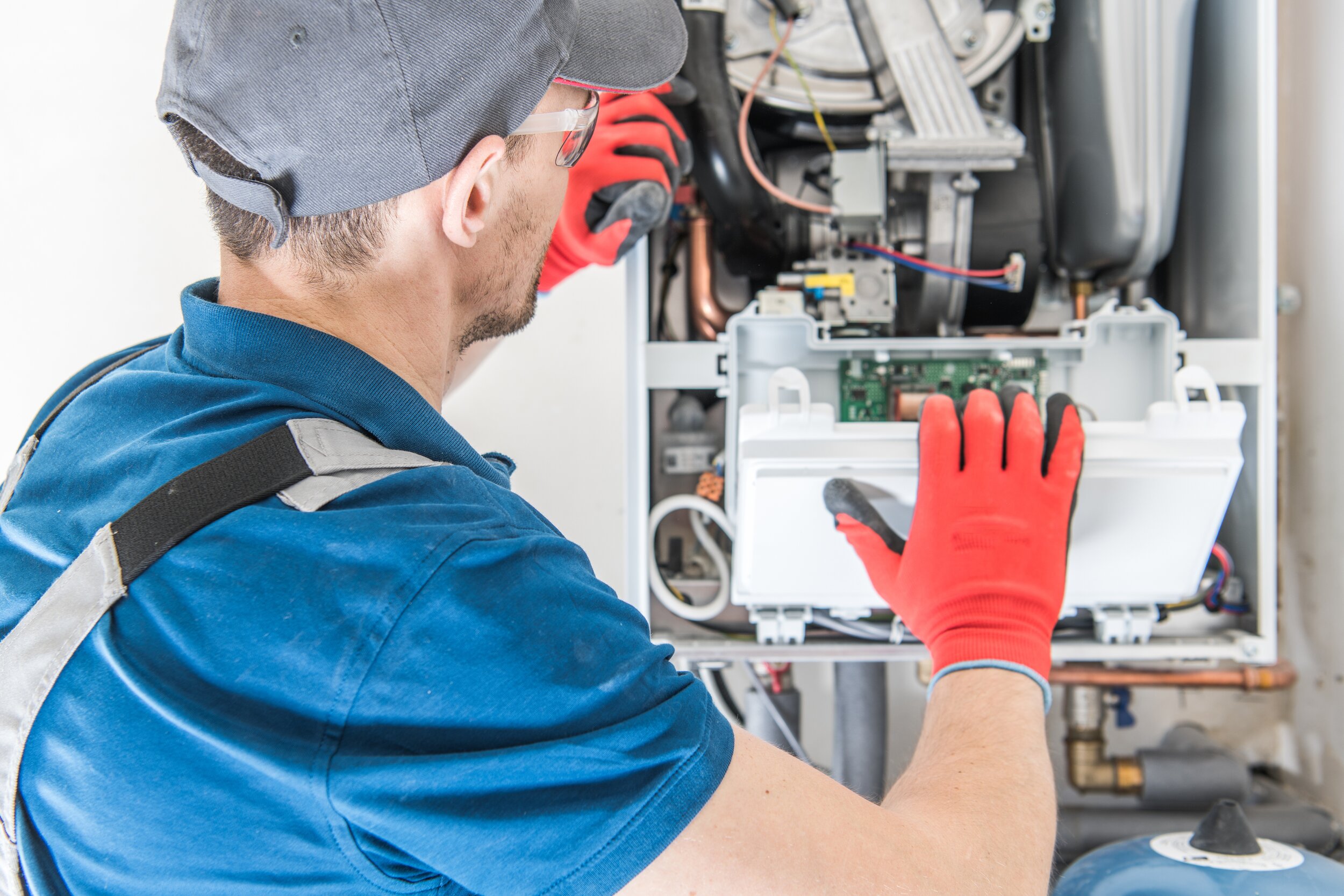If given the choice, would you choose a hot shower or a cold one? According to the Natural Gas Association, 62 million homes in the U.S. are heated using natural gas. It’s a widely common and convenient source of energy that allows us to cook food, dry clothing and yes — heat our water. However, natural gas is highly combustible.
If your gas line is improperly installed or maintained, a leak can pose a serious threat to the health and safety of your home. Similar to carbon monoxide, natural gas in high concentrations can prevent the body from absorbing oxygen. If your home runs on natural gas and you’re experiencing smells or sounds you can’t identify, we’ve put together this resource to help you detect and prevent a leaking gas line.
Common Symptoms of a Gas Line Leak
If you suspect a natural gas leak in your home, the first thing you should do is turn off the pilot light or gas meter and contact your gas company. Because gas is odorless, suppliers add a potent smell similar to rotten eggs to alert occupants and allow time for evacuation. In addition to smell, you can look and listen for other symptoms of a gas line leak. While there are various things to watch for, we prefer this simple SLL acronym from Oklahoma Natural Gas.
S-Smell
If you smell a rotten egg or sulfur-like odor in or around your home, at work or in your neighborhood, this odor may be the result of a natural gas leak. Natural gas is colorless and odorless, so we’ve added an odorant called mercaptan to warn you of a natural gas leak.
L-Look
Outside: Blowing dirt, persistent bubbling in puddles or standing water or dead vegetation in an otherwise healthy area are signs of a possible leak around a pipeline. Inside: If you see a yellow flame instead of a blue flame on your range, furnace or water heater, it’s a warning sign that the natural gas is not burning properly. This can lead to an increased potential for carbon monoxide poisoning as well as higher fuel bills.
L-Listen
An unusual noise like a hissing or roaring sound can indicate a leak on a pipeline. If you hear a hissing noise around your natural gas piping, meter or appliances, or if your natural gas appliance fails to ignite, you may have a natural gas leak.
How To Check Your Home for a Natural Gas Leak
In my cases, your nose will lead the way. However, if you’re still unsure whether you’re experiencing a natural gas leak, you can confirm or debunk using the following tactics:
1. Check your stovetop or oven range.
When you turn off the burner, gas stoves emit a blue flame. The color indicates there’s enough oxygen in the air in order for the gas to combust. If the stove is emitting orange or red flames after it’s been lit, it’s best to err on the side of precaution.
2. Try the soapy water test.
Mix a concentrated solution of a teaspoon of dish detergent and one cup of water. Apply it wherever you suspect a leak -- like a connection or juncture. Bubbles forming indicate escaping gas. It sounds like an old wive’s tale, but can be helpful in a pinch.
3. Use a gas leak detector.
A more concrete way to identify a gas leak is by using a detector. There are plenty of devices on the market, ranging in price. We’d recommend these seven detectors and leak sensors.
4. Schedule a gas pressure test.
A gas pressure test is a sure-fire way to detect (and prevent) leaks in your home. Pressure testing locates any weaknesses in your natural gas system. It subjects your pipeline to higher operating pressures in order to confirm the integrity of your pipes, fittings and joints. Depending on the situation, testing may be done using pressured air, gas, or water. It can be administered by your local plumber before the pipeline is put into service or to existing gas lines that have been in service for years.
What To Do if You Suspect a Gas Leak
If you’re still unsure it’s a gas line leak, turn off the pilot light on your stove, furnace, and water heater. If you fully suspect a leak, don’t turn on any electronics, appliances, lights, or air conditioning. Likewise, don’t start your vehicle. Natural gas is highly flammable and can be ignited by heat, spark, or flames.
Next, open the windows and ensure all occupants make their way out of the home immediately. Inhaling high concentrations of natural gas can be fatal. Once you’re at a safe distance from the home, call your gas company and don’t reenter the house until a professional deems it safe.
How To Prevent Gas Line Leaks in the Future
In addition to gas leak detectors, you can proactively prevent leaks by conducting routine maintenance on furnaces, stoves, fireplaces and other equipment that uses natural gas. Ensuring proper ventilation of spaces where gas is being used is another way to stay safe — especially when it comes to generators in winter. Test your gas leak, carbon monoxide and smoke detectors monthly and be sure to replace batteries annually.
A Gas Pressure Test or “Gas Meter Reset”
Although it may be inconvenient at times, pressure testing existing lines is an important part of property management — whether you’re a homeowner or landlord. Gas pressure tests can identify flaws in pipe material, detect cracking or other damage, indicate where corrosion has weakened the pipe, or expose locations where the original installation was faulty. This allows you to replace the system before a serious gas leak occurs.
It’s wise to schedule a pressure test when your heater has been inactive for an extended period of time. Once you hit the 12-month mark (whether you’re a homeowner or property manager), the city requires a permit, inspection and gas pressure test — also known as a “gas meter reset.”
Contrary to what you might think, you’ll conduct this test through a plumber rather than an electric or energy company. Because so many components are involved, the process can take a while. That’s why it’s important to monitor your natural gas system, maintain it properly, and proactively schedule a pressure test before it’s required.
Schedule a Pressure Test Before Winter Arrives
As mentioned, a city inspection can be a lengthy process. And, let’s be honest. Who wants to wait that long for heat during cold weather? Fortune favors the proactive and to help keep your family safe (and warm) this winter season, we’re offering a special promotion.
Now through the end of December, you can schedule a gas pressure test with BL3 Plumbing for just $350. To learn more, contact our team today at (405) 237-1414.


